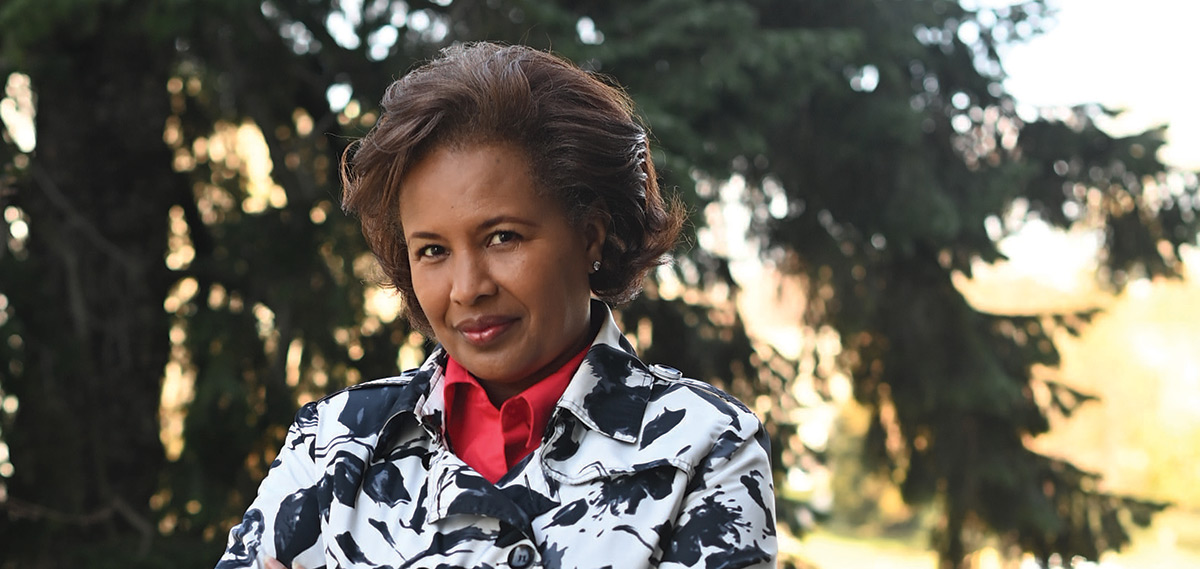

Michele Joseph, B.S. 1984, remembers the moment she realized the power of science to affect social justice. She was a biology major and president of the CatholicU Biology Club when she helped organize a packed event on campus: Science and Its Impact on Food and the People of El Salvador and Central America.
“I saw for myself how applications of science could impact life and death for entire societies,” she says.
Joseph calls the moment an “awakening” that fueled the passion with which she later founded the nonprofit Student Global Ambassador Program (SGAP) Leaders in 2016. The program empowers young leaders to take action on real-world issues using science, technology, engineering, and math (STEM) to solve sustainability and social justice challenges.
Her father taught AP biology at Bishop O’Connell High School in Arlington, Va., and inspired her love of science. She says her mom, Elsie, an educator for 50 years and a “prayerful and loving person,” serves as her inspiration for SGAP Leaders. Elsie Joseph received her Ph.D. from Catholic University on the same day her daughter received her B.A. in 1984.
Following her graduation, Joseph spent a few years travelling the world as a successful runway model, but she wanted something more. She returned to Washington, D.C., and earned an M.B.A. from Georgetown University, which led to positions in technology and business. While working in advertising on Madison Avenue in New York City, she was diagnosed with cancer.
During her convalescence, she volunteered to read to preschoolers at Morristown (N.J.) Neighborhood House. “Their joy, their utter openness healed me,” she says. Then she began to share her story with high school students.
“As I engaged with them, it was clear this was the age where students are open to inspiration and knowledge and have a desire to find their place in the world,” says Joseph. “I learned more about the education system, the Common Core standards, next-generation science standards, and the challenges that teachers face.”
It wasn’t long before she was collaborating with the Urban League and local colleges to provide out-of-classroom programs allowing students to tackle such global problems as renewable energy, fair trade, teen suicide, and clean water.
In 2015, she moved back to the D.C. area, and in 2016 she formally launched SGAP Leaders, an organization that has now reached more than 3,500 students in 78 schools in New York, New Jersey, Maryland, Washington, D.C., and Virginia. The program has teamed with businesses, institutes, and universities.
In 2018, she brought SGAP Leaders to CatholicU, working with the School of Engineering and the School of Architecture and Planning to sponsor a sustainability challenge. For Joseph, it brought back memories of that conference she helped organize on campus more than 30 years earlier.
She reveled in the satisfaction of knowing she was achieving her life’s purpose. Then, last spring, the worldwide pandemic threatened to shut down the work of SGAP Leaders. It was a difficult time for Joseph, who lost a family member to the virus.
After taking time to “cry, grieve, and pray,” she says, “I asked God, ‘How can SGAP Leaders be of service to you?’” And she thought about residents of nursing homes and other long-term care facilities who had been hit so hard by COVID.
“Many of our students were isolated at home and felt hopeless. I knew they could help,” she says. SGAP Leaders launched a project called Letters of Encouragement that allowed students in middle and high schools to share letters, drawings, short stories, or poems of encouragement with elderly residents of such facilities.
SGAP Leaders is now offering workshops virtually, allowing students in multiple states to work together to solve such timely problems as human trafficking, voter suppression, and systemic racism. As the program expanded beyond the mid-Atlantic region, Joseph found a silver lining: The pandemic is offering a life lesson, she says. “Adapting is a critical skill in using science to solve global problems.” — E.N.W.